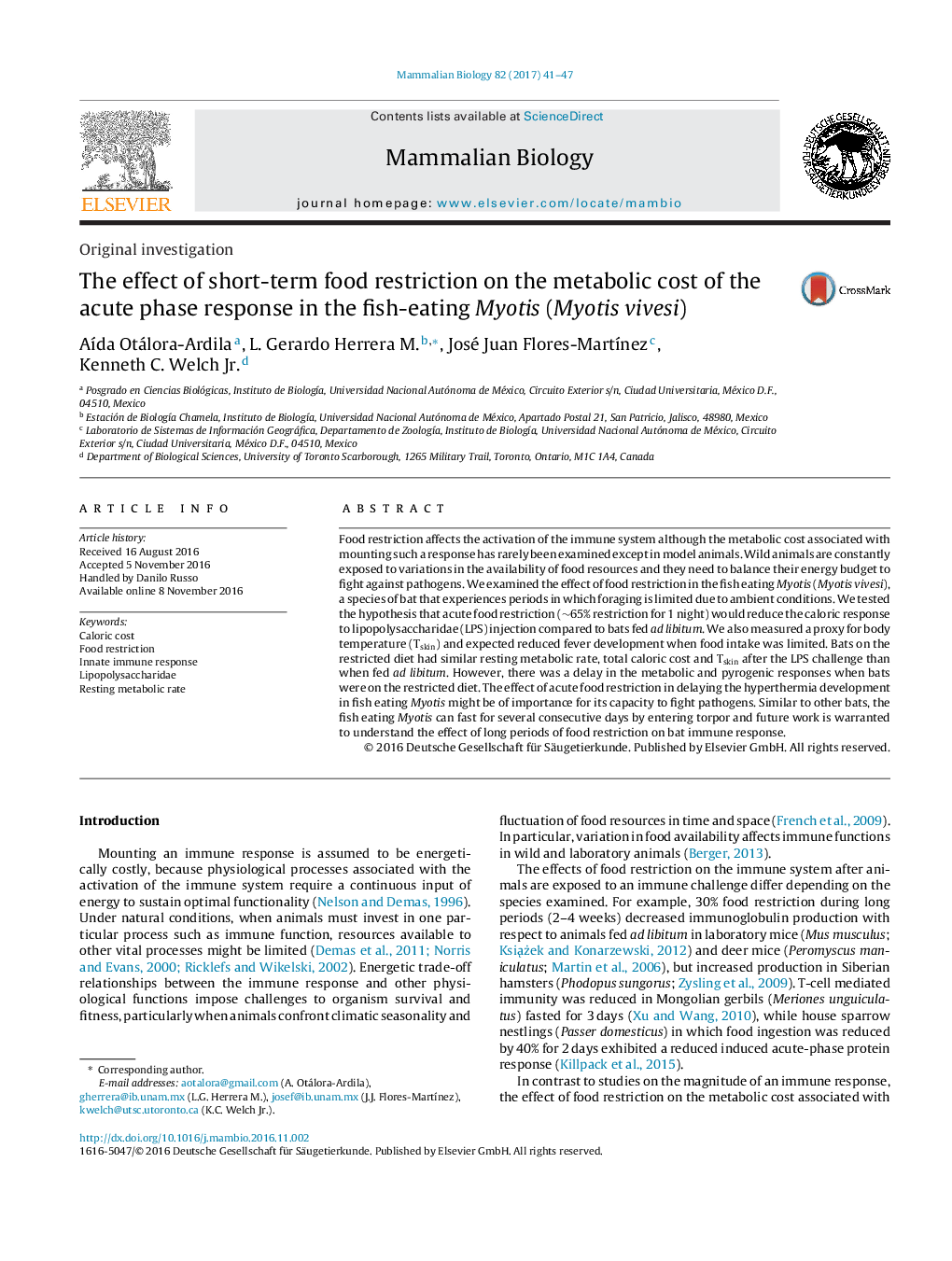| Article ID | Journal | Published Year | Pages | File Type |
|---|---|---|---|---|
| 5533728 | Mammalian Biology - Zeitschrift für Säugetierkunde | 2017 | 7 Pages |
Food restriction affects the activation of the immune system although the metabolic cost associated with mounting such a response has rarely been examined except in model animals. Wild animals are constantly exposed to variations in the availability of food resources and they need to balance their energy budget to fight against pathogens. We examined the effect of food restriction in the fish eating Myotis (Myotis vivesi), a species of bat that experiences periods in which foraging is limited due to ambient conditions. We tested the hypothesis that acute food restriction (â¼65% restriction for 1 night) would reduce the caloric response to lipopolysaccharidae (LPS) injection compared to bats fed ad libitum. We also measured a proxy for body temperature (Tskin) and expected reduced fever development when food intake was limited. Bats on the restricted diet had similar resting metabolic rate, total caloric cost and Tskin after the LPS challenge than when fed ad libitum. However, there was a delay in the metabolic and pyrogenic responses when bats were on the restricted diet. The effect of acute food restriction in delaying the hyperthermia development in fish eating Myotis might be of importance for its capacity to fight pathogens. Similar to other bats, the fish eating Myotis can fast for several consecutive days by entering torpor and future work is warranted to understand the effect of long periods of food restriction on bat immune response.
